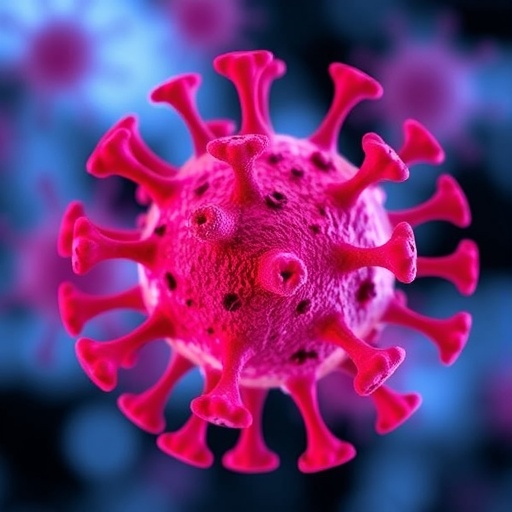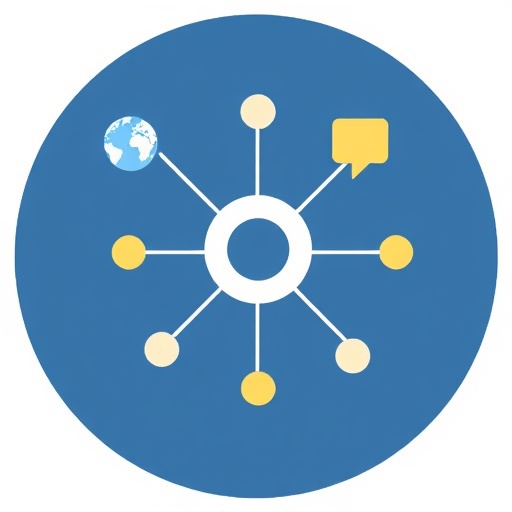
In the ever-evolving landscape of neonatal care, the importance of systematic follow-up for neonates cannot be overstated. A recent survey conducted in the United Kingdom has delved deeply into the complexities surrounding neonatal neurodevelopmental follow-ups. This survey reflects a collective inquiry into current practices and strategies aimed at optimizing outcomes for infants who are at risk for developmental delays. The findings underscore a pressing need for comprehensive frameworks and methodologies to enhance the efficacy of neonatal evaluations, providing insights that are not only pertinent but also crucial for advancing pediatric care.
The research led by Marcoft and colleagues sheds light on the existing practices pertaining to neonatal neurodevelopmental follow-up within various healthcare settings across the UK. With an emphasis on understanding the landscape of these evaluations, the study captures the variance in methodologies adopted by different health institutions. This variance underscores the necessity for a more unified approach to neonatal follow-ups, particularly for those born prematurely or with other risk factors. By identifying current practices, the research opens a pathway for establishing standardized protocols that could better serve this vulnerable population.
One of the significant revelations of the survey is the contrasting methodologies employed by different healthcare providers. While some clinics offer structured follow-up programs that include regular assessments, others follow a more ad hoc approach with less consistency. This disparity raises critical questions about how these differences impact long-term developmental outcomes for newborns. It hints at the potential for inequities in care access and quality, prompting calls from healthcare professionals for more cohesive national guidelines that would govern neonatal follow-up practices across the nation.
The survey identified key areas where improvements could be made to existing protocols. For instance, enhanced training for healthcare providers involved in neonatal assessments was highlighted as essential. Ensuring that practitioners are well-versed in the latest developmental screening tools and techniques is crucial for accurate and timely evaluations. The research points to the pressing need for ongoing education and resources for practitioners who directly engage with neonates and their families, fostering an environment where high-quality care is the norm rather than the exception.
Furthermore, the study emphasizes the role of interdisciplinary collaboration in improving neonatal follow-up outcomes. Bringing together professionals from various fields such as pediatrics, neurology, psychology, and nursing can create a more holistic approach to addressing the complex needs of neonates. Interdisciplinary teams can ensure that all aspects of a child’s development are monitored and supported, paving the way for more comprehensive care strategies that are sensitive to the various dimensions of neurodevelopment.
As the landscape of neonatal care continues to evolve, the survey calls attention to the importance of longitudinal studies that track the efficacy of follow-up programs over time. Such studies would provide vital data on developmental trajectories, offering insights into the effectiveness of different interventions and practices. By documenting outcomes over extended periods, healthcare providers can better understand the long-term impacts of early interventions, thereby adapting their strategies to optimize neurodevelopmental outcomes for affected children.
Moreover, the implications of this research extend beyond simply recognizing current practices; they highlight the importance of integrating family-centered care into the follow-up process. Engaging families as active participants in their child’s neurodevelopmental journey is paramount. This involvement not only fosters better communication but also empowers parents with the resources and knowledge necessary to monitor their child’s development, ensuring that they are equipped to advocate for their child’s needs as they grow.
The research also investigates the technological advancements that could enhance neonatal follow-up practices. The use of telehealth and digital screening tools is becoming increasingly viable in the realm of pediatric care, allowing for remote assessments and consultations. This approach could be particularly beneficial in reaching families in underserved areas, thus bridging gaps in access to vital developmental assessments. The integration of technology into follow-up care is not just a convenience but a necessity in modern healthcare, promoting greater accessibility and flexibility for families navigating the challenges of neonatal care.
In addition to technology, the study discusses the potential role of community resources in supporting neurodevelopmental follow-ups. Local organizations and support groups can play a crucial role in providing supplementary resources for families, ranging from educational materials to emotional support. By fostering connections within the community, healthcare providers can help families build networks that bolster their child’s development, creating an ecosystem of support that extends beyond clinical walls.
Equally significant is the survey’s spotlight on the need for culturally competent care in neonatal follow-ups. Recognizing and respecting the diverse backgrounds of families is essential in ensuring that all children receive fair and equitable assessments. Culturally sensitive practices can help healthcare providers better connect with families, ensuring that they understand the unique values and challenges each family may face. This sensitivity is crucial for building trust, which in turn enhances the overall effectiveness of follow-up care.
As the study unfolds, it becomes evident that the potential for improving neonatal neurodevelopmental follow-ups in the UK is not just a matter of refining current practices but also about envisioning a future where every infant has access to quality care. This vision involves the concerted efforts of healthcare providers, policymakers, and communities working together to create frameworks that prioritize the developmental needs of neonates. It envisions a system where assessments are comprehensive, timely, and, most importantly, inclusive of the intricate realities faced by families.
In conclusion, the survey conducted by Marcoft and colleagues provides not only a snapshot of the current state of neonatal neurodevelopmental follow-up practices in the UK but also serves as a clarion call for change. The findings elucidate the critical need for standardized protocols, interdisciplinary collaboration, and a commitment to culturally competent care. It is an invitation for stakeholders across the healthcare spectrum to join forces in ensuring that every neonate, regardless of their circumstances, receives the comprehensive follow-up care they need to thrive. As we look to the future, it is imperative that we heed this call and commit to revolutionizing the ways we approach neonatal neurodevelopment, paving the way for healthier and more resilient generations to come.
Subject of Research: Neonatal neurodevelopmental follow-up practices in the UK
Article Title: Neonatal neurodevelopmental follow-up in the UK: a survey of current practice and future recommendations
Article References:
Marcroft, C., Cruickshank, H., Johnson, S. et al. Neonatal neurodevelopmental follow-up in the UK: a survey of current practice and future recommendations.
BMC Pediatr 25, 674 (2025). https://doi.org/10.1186/s12887-025-05960-7
Image Credits: AI Generated
DOI: 10.1186/s12887-025-05960-7
Keywords: Neonatal care, neurodevelopmental follow-up, pediatric assessment, interdisciplinary collaboration, culturally competent care
Tags: comprehensive frameworks in neonatal carecurrent practices in neonatal follow-updevelopmental delays in neonatesfuture directions in pediatric neurodevelopmental assessmentshealthcare methodologies for neonatesneonatal care optimization strategiesneonatal neurodevelopmental follow-up practicespediatric care advancementspremature infant follow-up strategiesstandardized protocols for neonatal evaluationsUK neonatal care survey findingsvariance in neonatal evaluation methods




